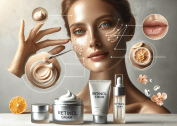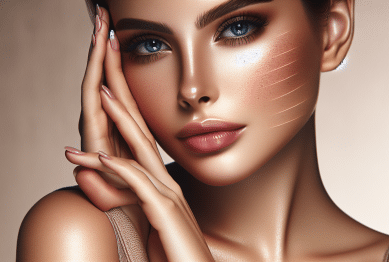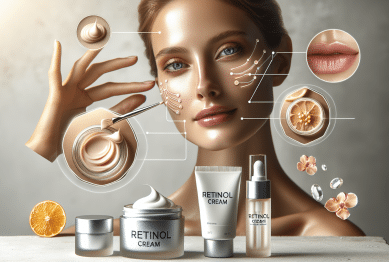Explore the science, myths, and essential strategies behind radiant skin and how a simple skincare routine can make a big difference. This guide reveals wellness tips, gentle ingredients, and routines that many overlook on their journey to long-term beauty and wellness.
The Foundations of Healthy Skin
Healthy skin isn’t just about appearance—it reflects your overall wellness and daily habits. Diet, hydration, and sleep profoundly impact how your skin looks and feels. An effective skincare routine, centered on gentle cleansing and proper moisturization, helps maintain a barrier that protects against dryness, irritation, and pollutants. Many underestimate the influence of stress, but it seriously impacts skin balance and glow. By focusing on self-care and lifestyle adjustments, anyone can optimize their complexion and enhance natural luminosity.
The role of nutrition and hydration stands out across wellness research. Antioxidants found in fruits and vegetables help defend skin cells against environmental stressors. Omega-3 fatty acids, present in foods like salmon and walnuts, support cell membranes, giving skin suppleness and softness. Drinking enough water daily is another vital routine for maintaining a dewy, hydrated look. Small dietary changes may provide unexpected long-term benefits, leading to a lasting, healthy glow.
Beyond topical treatments, mental wellness plays a quiet but powerful role in skin health. Chronic stress is associated with breakouts and dullness, as cortisol and inflammation disrupt normal cellular repair. Mindfulness and relaxation techniques—such as yoga, meditation, or gratitude journaling—can help balance hormones and boost your skin’s radiance indirectly. The best complexions often reveal an inner calm, showing how closely mind and body connect in true beauty.
Debunking Common Skin Myths
When it comes to glowing skin, misinformation often spreads faster than the facts. Many believe harsh cleansers lead to clearer skin, but they often strip essential oils and cause irritation. Similarly, the myth that oily skin doesn’t need moisturizer persists—yet, all skin types benefit from hydration, which helps balance oil production. Clearing up confusion is vital to building a routine that works with, not against, your individual needs.
Another widespread myth involves the miracle promises of certain ingredients. For example, products boasting the absolute need for astringents or alcohol-based toners sometimes do more harm than good. Research shows that gentle routines, including non-comedogenic moisturizers, double cleansing, and the use of lightweight serums, are better for most skin. Instead of chasing extreme measures, focusing on consistency and evidence-based steps pays off.
Sun exposure is often misunderstood as well. Some believe darker skin tones don’t require sunscreen, but documented health research confirms UV protection is essential for everyone. Broad-spectrum SPF shields against premature aging and reduces the risk of serious skin conditions. Building sun protection into daily habits—rain or shine—should be a universal priority. Knowledge empowers better choices, making way for healthier skin for all ages and tones.
Building an Effective Skincare Routine
Creating a daily routine suitable for your skin type is at the core of achieving lasting radiance. Start with a mild, sulfate-free cleanser to remove impurities without disturbing your skin’s natural oils. Adding an antioxidant-rich serum, such as those containing vitamin C or E, provides an extra layer of environmental defense. For nighttime, opt for light exfoliation and nourishing creams that support overnight repair and renewal.
Layering products is less about quantity and more about sequence and compatibility. Toners can tone and hydrate, preparing your skin for active ingredients. Niacinamide and hyaluronic acid are two highly sought-after elements that help with hydration and barrier health. Locking in moisture with a non-greasy moisturizer completes your core steps. With patience, results amplify—skin becomes more resilient, smoother, and visibly brighter over several weeks.
Adjusting routines seasonally also matters. Colder months often demand richer emollients to combat dryness, whereas summer may shift your focus to lightweight, oil-free formulas. Listen to your skin; it communicates shifts in sensitivity, needs, or reactivity. Making minor tweaks ensures balance year-round. Consistency and patience trump fad routines every time—real progress often emerges quietly, but lasts much longer.
Natural Ingredients and Wellness Trends
Interest in natural and plant-based skincare continues rising. Aloe vera, green tea extract, and rosehip oil are frequently referenced by beauty researchers for their soothing and restorative properties. Unlike some heavily processed compounds, these offer antioxidant benefits and gentle nourishment. Integrating such ingredients into your routine can be a simple, science-backed way to boost your skin’s wellness, when paired with broader self-care strategies.
Trends like facial oils, Gua Sha, and holistic treatments have also made a mark. While not all wellness fads are proven, some—like gentle facial massage or using jade rollers—do promote relaxation and lymphatic support. These techniques, when combined with a balanced lifestyle, may encourage circulation and temporary reduction in puffiness. It’s important to distinguish between genuine benefits and marketing hype by referring to trustworthy wellness studies and expert consensus.
Skin needs vary widely, so not every trending product will suit all individuals. Patch testing before fully introducing new serums, masks, or exfoliants remains best practice. Seek brands and products that publish ingredient lists transparently and are supported by credible dermatological research. Natural beauty is less about shortcuts and more about thoughtfully combining nature and science for truly glowing skin—inside and out.
Sun Protection and Long-Term Beauty
One of the most effective ways to maintain radiant skin is protecting it from excessive sun exposure. UV rays damage collagen, leading to accelerated aging and increased skin health risks. Regular application of broad-spectrum sunscreen—regardless of skin type or weather—is recommended by health authorities worldwide. Sun hats, sunglasses, and shade all contribute to defense, but sunscreen is indispensable.
Modern sunscreens offer a range of lightweight, easily absorbed formulas suitable for all tones, avoiding previous complaints about white residue. Mineral and chemical sunscreens both block harmful radiation, but choosing one may depend on personal preference or sensitivity. Reapplication every few hours during outdoor activity maximizes protection and keeps your skin looking youthful for decades.
Sun protection is linked to greater skincare routines, as prevention remains easier than reversal. The earlier individuals adopt sun safety, the greater their long-term benefit. Combined with regular hydration and balanced nutrition, sun protection is an essential pillar of lifelong beauty and wellness. Glowing skin is a reflection of proactive choices today, supporting health and vibrance tomorrow.
Hormones, Stress, and Skin Health
Hormones profoundly influence skin condition throughout different life stages. Puberty, menstruation, pregnancy, and menopause can all bring shifts in oil production, sensitivity, and hydration. These changes may require tweaks to skincare routines and additional patience. Consulting a dermatologist or health specialist provides guidance for targeting individual needs during hormonal transitions, supporting resilience and confidence.
Psychological factors matter too. Chronic stress, whether physical or emotional, raises cortisol and inflammation, often leading to breakouts, dryness, and overall dullness. Studies link relaxation and mindfulness practices—like meditation, gentle exercise, and journaling—to reduced skin problems. By treating overall wellbeing as inseparable from beauty, more sustainable results follow.
Understanding the root causes behind sudden skin changes can relieve undue worry. Hormonal acne, redness, and sensitivity don’t reflect personal shortcomings but are signs to pay attention to internal rhythms. Gentle care, nurturing routines, and a holistic approach to wellness help the skin weather these storms while maintaining as much radiance and resilience as possible.
References
1. American Academy of Dermatology. (n.d.). How to care for your skin. Retrieved from https://www.aad.org/public/everyday-care
2. Harvard Health Publishing. (n.d.). Stress effects on skin. Retrieved from https://www.health.harvard.edu/staying-healthy/stress-and-your-skin
3. Mayo Clinic. (n.d.). Healthy skin care routine. Retrieved from https://www.mayoclinic.org/healthy-lifestyle/adult-health/in-depth/skin-care/art-20048237
4. U.S. Food & Drug Administration. (n.d.). Sunscreen: How to help protect your skin. Retrieved from https://www.fda.gov/drugs/understanding-over-counter-medicines/sunscreen-how-help-protect-your-skin-sun
5. National Center for Complementary and Integrative Health. (n.d.). Herbs at a glance: Aloe vera. Retrieved from https://www.nccih.nih.gov/health/aloe-vera
6. Skin Cancer Foundation. (n.d.). Sun protection guidelines. Retrieved from https://www.skincancer.org/skin-cancer-prevention/sun-protection/









